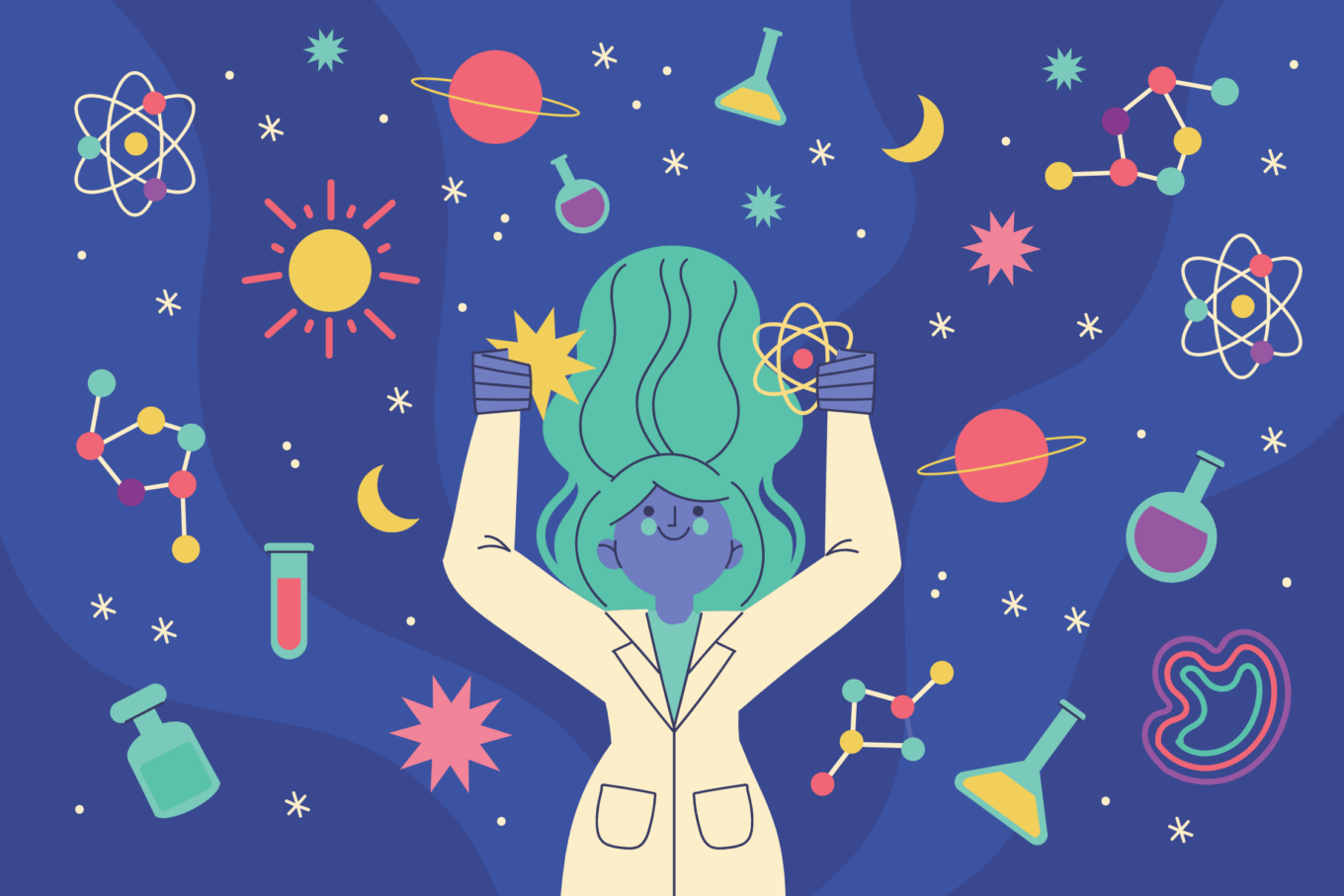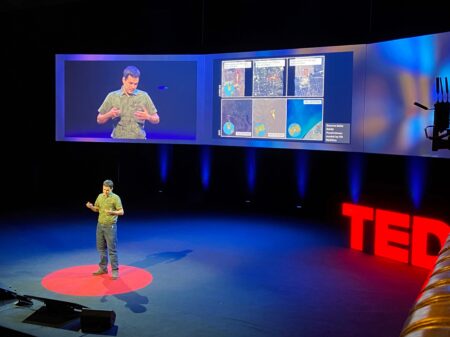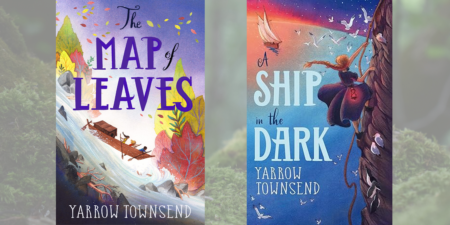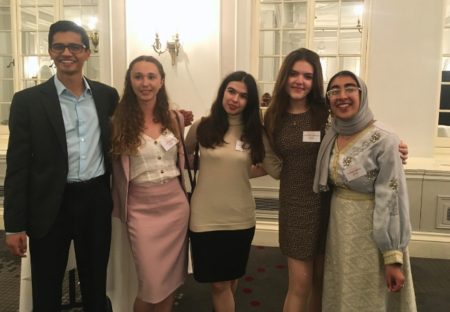International Day of Women & Girls in Science is an opportunity to celebrate individuals as well as to campaign for greater equality of access to education, research and careers in science. We asked six female scientists at Hertford College about their experiences.
Left to right below: Lizzie Bateman is a second-year student reading Chemistry. Professor Fernanda Duarte is a Tutorial Fellow who researches computational organic chemistry. Ashley Singh is a fourth-year student reading Computer Science & Philosophy. Dr Aleksandra Ziolkowska is a Lecturer in Physics who researches fundamental quantum mechanics. Aminah Memon is a first-year student reading Biology. Dr Delia O’Rourke is a Lecturer in Biochemistry and Human Sciences who researches genetics and molecular biology.
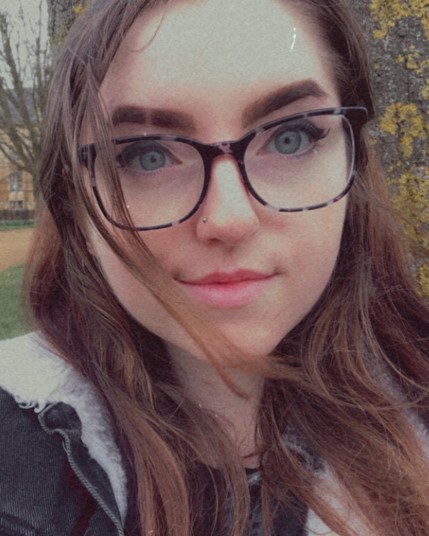
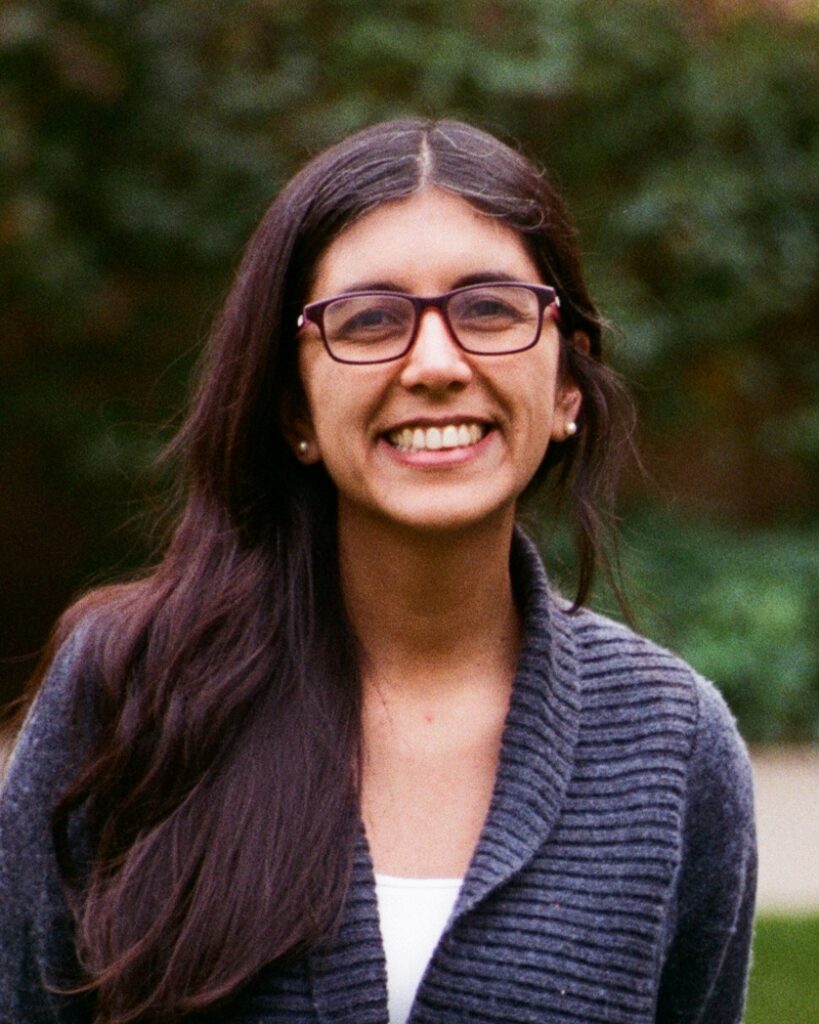
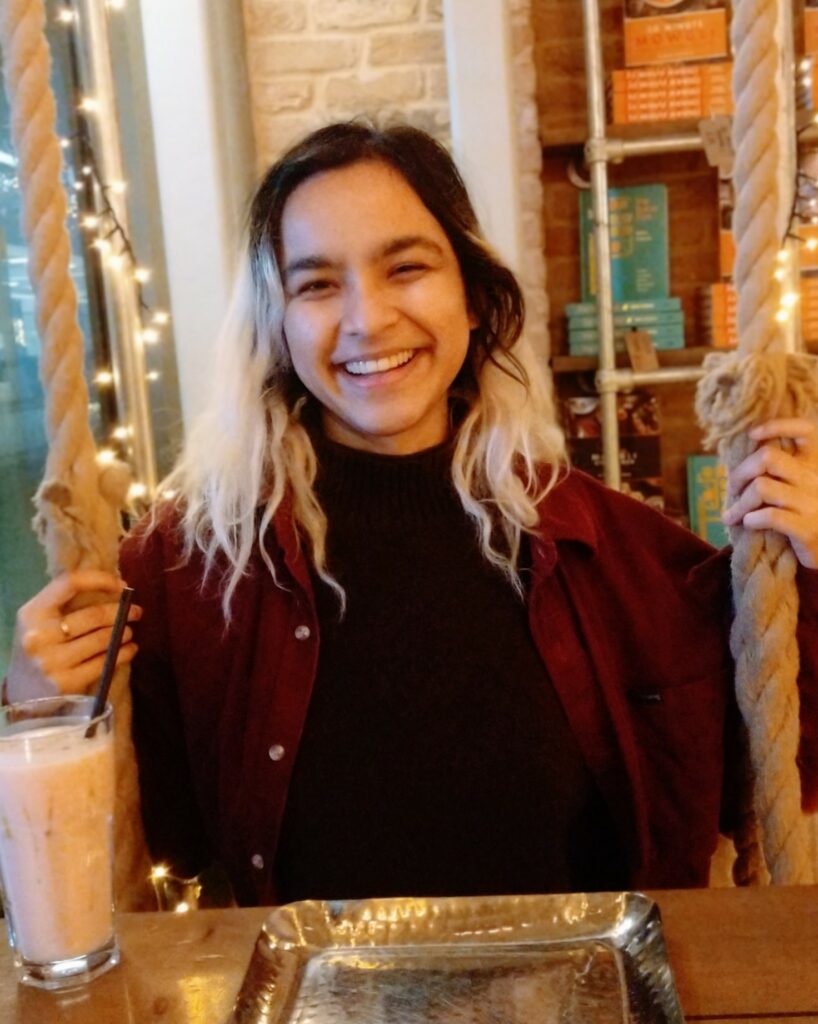
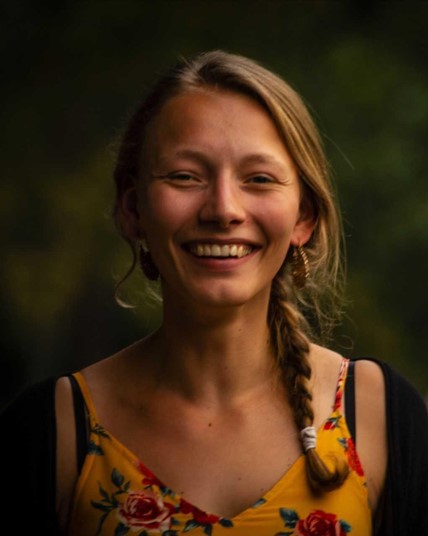
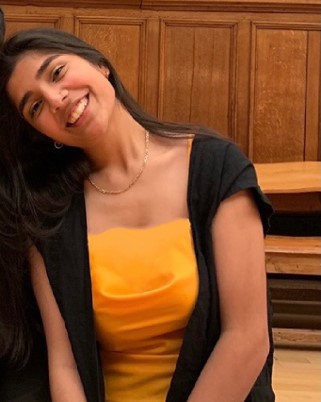
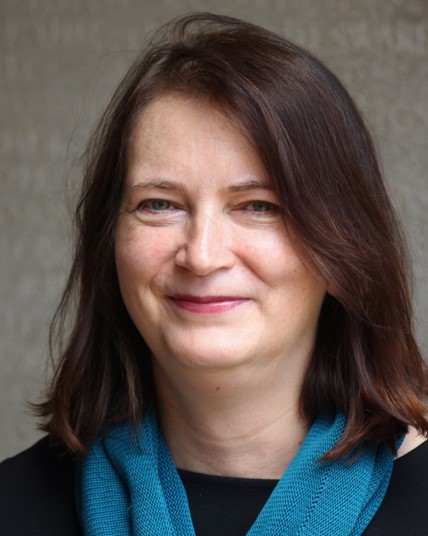
What inspired you to study science?
Fernanda: Chemistry, for me, is an acquired taste. It was only during high school that I became interested in science subjects and discovered the joy of understanding things at a more fundamental level. What really inspired me and gave me the confidence to embark on a scientific career was the encouragement from my mentors in university and in my family. Without them, I would not have even thought I could succeed in this subject, let alone make a living out of it. I am happy that this somewhat serendipitous choice was the one I took, as I don’t see myself doing anything else.
Lizzie: My favourite thing about science is the fact that it underpins the entire world around us. Whether you’re looking into the biology of how the body works, new ways to solve the climate crisis, or even something as simple as why a cake rises when it bakes – all of this can be explored through science. My lifelong curiosity about the world around me, always questioning the reason why things are the way they are, inspired me to pursue science and one day hopefully enter the world of research myself.
Aleksandra: As a child I loved exploring and learning new things. My parents encouraged my passion by taking me to science fairs and buying pop science magazine subscriptions. I once read an article on quantum mechanics and the whole idea seemed to me so outlandish that I decided this is the sort of crazy thing I want to do!
Delia: Curiosity. I was inspired by the work of Carl Sagan and the fascinating scientists who delivered the Royal Institution Christmas lectures. I also remember borrowing The DNA Story – A Documentary History of Gene Cloning from my local library which opened up the world of genetics.
Ashley: The most important source of inspiration must have been support, from others but also myself. I received positive reinforcement around maths and the sciences from a young age, and I was encouraged by teachers to be passionate about learning. During the times when the positive reinforcement wasn’t there, I kept trying to view doing maths and science as part of my identity. Still, I haven’t really picked science *over* other subjects, nor picked the identity of scientist over other identities – I don’t see an interest in science being incompatible with an interest in anything else.
Aminah: I think as you start getting older, at least for me, you start becoming more curious about how the world and the society around you functions. Science gave me the detailed insights I was looking for about the relationships between everything on this planet in a way I could never predict – it’s like a never-ending storybook. Science lets you ask an unlimited list of questions that always have a different answer yet with an underlying sense of logic and reasoning. I can’t imagine what could be more intriguing than that!
Who is your female role model in the world of science?
Aminah: I am the first in my family to pursue STEM so, while it sounds boring, I never looked up to or really knew many female scientists. That was until I met my two GCSE and sixth form biology teachers. While seeing famous female scientists felt intimidating and unattainable, being taught by such passionate women made me want to explore biology outside of school. They inspired me, someone who had never been exposed to science as a possibility, to want to break that barrier.
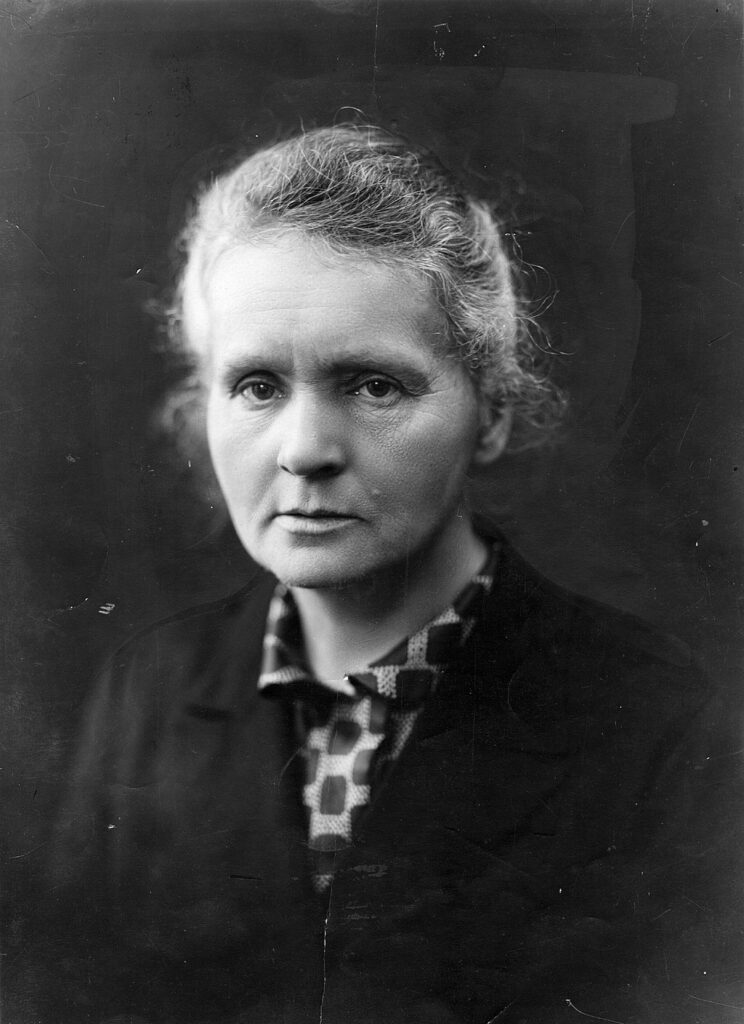
Fernanda: My undergraduate thesis supervisors (equivalent to Oxford’s Part II) Bárbara Loeb and Irma Crivelli. From them I learned to be critical of scientific claims, sceptical of my own results, and more confident of my knowledge. They encouraged me to improve my English, look for opportunities abroad, and go beyond my comfort zone. They also showed me that one could be rigorous and critical while remaining kind and human.
Aleksandra: Maria Skłodowska Curie! She was an exceptional scientist recognised with two Nobel Prizes in chemistry and physics. But, more importantly, she relentlessly pursued her scientific goals despite facing discrimination both as a woman and as an Eastern European. Her research success was the beginning of a slow breaking of western male domination in sciences. Although under very different circumstances, I personally hope to contribute to furthering the inclusivity in STEM through my own career.
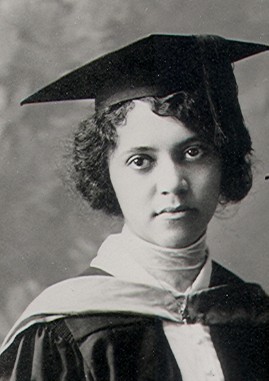
Ashley: I don’t really have one role model – I’m encouraged when I come across other women in computer science, but these are by and large other students who are no less lost than I am! I do have a photo on my wall from a Hertford computer science trip to Bletchley Park at the end of my first year. The photo depicts women mathematicians and linguists around a table, each codebreaking using computing machines. These women were sort of early computer scientists doing collaborative work but they were only afforded STEM opportunities, such as university study, due to men being sent away to war.
Delia: I don’t really have role models; but I enjoyed the elegant experiments of Susan Lindquist, who used multidisciplinary approaches to answer questions about protein folding.
Lizzie: There are many inspirational women in the world of science, making breakthroughs in all areas of the field, yet historically many have remained unrecognised or uncredited. An example of this is Alice Ball, who revolutionised the treatment of leprosy through her work as a chemist, but was not credited for her lifesaving work until six years after her death. I think it’s truly inspirational that she and many women just like her continued their work purely for the development of science rather than for personal reward.
What would you say to your 12-year-old self about getting involved in science?
Lizzie: To my 12-year-old self, I would say to never stop being curious and questioning things, no matter what people say. There’s so much to investigate and research so get involved and stay inquisitive!
Aminah: I would say that science is not as static as it is thought to be – you can be in control in such a subject. You can really let your creativity shine in science (particularly biology!), which is unexpected. Science is not scary, it’s an exciting opportunity for you to challenge yourself in many ways, whether that be mathematically, essay writing, practically or even artistically.
Fernanda: You will make mistakes and fail sometimes – try not to worry or get anxious when this happens. Acknowledge your mistakes, learn the lessons, and move forward. Do not allow these failures to put you off pursuing your dreams!
Delia: Keep going, and soon you’ll get to the fun part when you can start designing and conducting experiments to answer the questions that you’re interested in.
Aleksandra: At the age of 12, I already loved science. But I would just say to others, don’t stand in girls’ way!
Ashley: Nothing. At 12 I was freely and joyously engaged in science. I would say to my 21-year-old self that I could be more curious and impressed by science, like I was as a child.
Cover image adapted from pikisuperstar
